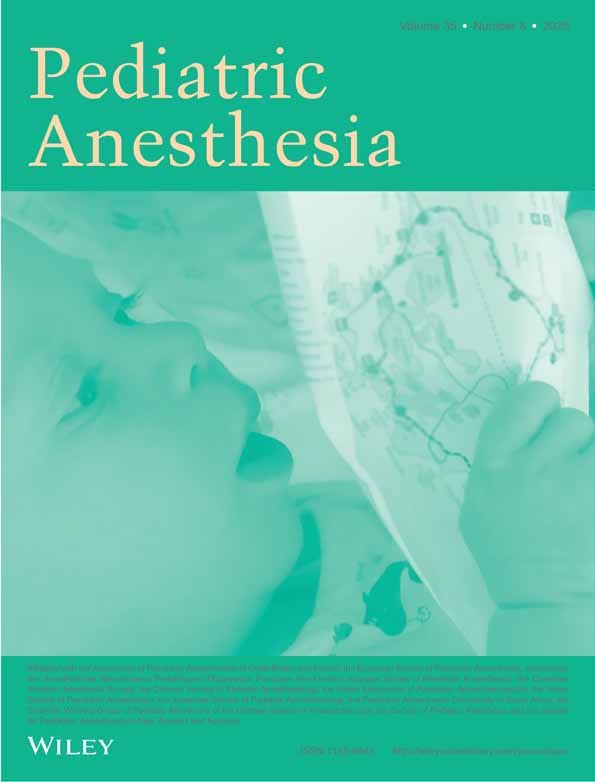Lacticacidosis after short-term infusion of propofol for anaesthesia in a child with osteogenesis imperfecta
Summary
We describe the case of a 7-year-old boy with osteogenesis imperfecta, who underwent anaesthesia with propofol–fentanyl–nitrous oxide–suxamethonium for orthopaedic surgery of a distal femur fracture. He developed lacticacidosis after short-term propofol infusion (150 min, mean infusion rate 13.5 mg·kg−1·h−1) associated with a prolonged recovery time without serious haemodynamic changes. The highest lactate concentration was 9.2 mmol·l−1 at 160 min after discontinuation of propofol. There was no significant increase in body temperature. The boy fully recovered.




